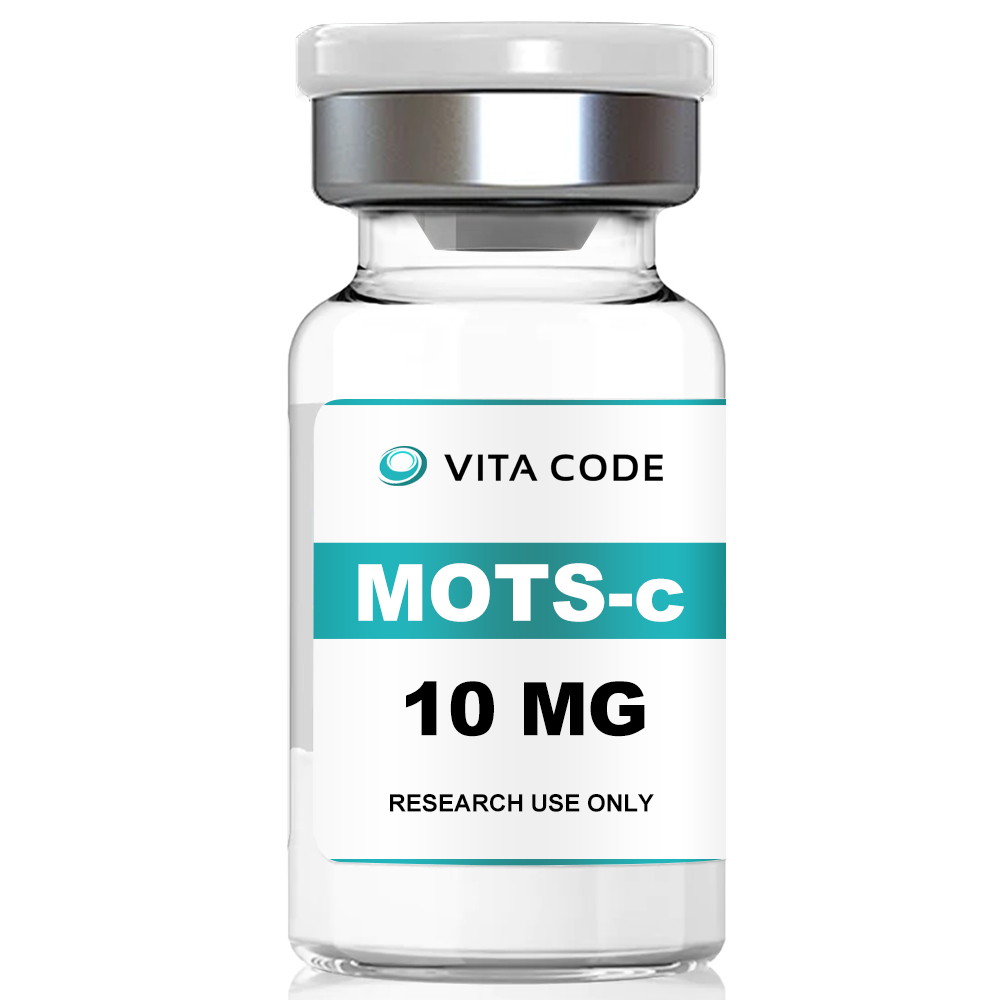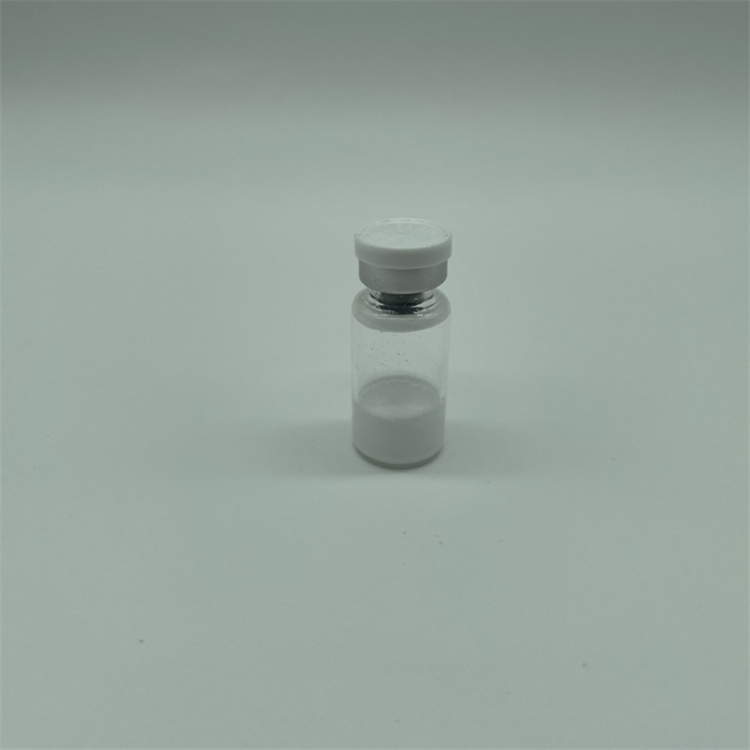MOTS-c 10MG
MOTS-c is a short peptide encoded in the mitochondrial genome and a member of the larger group of mitochondrial-derived peptides (MDPs).
Additional information
| Name | MOTS-c |
|---|---|
| Sequence | Met-Arg-Trp-Gln-Glu-Met-Gly-Tyr-Ile-Phe-Tyr-Pro-Arg-Lys-Leu-Arg |
| CAS No. | 1627580-64-6 |
| Purity | 99% |
| Appearance | Lyophilized Powder |
| Molecular Formula | C101H152N28O22S2 |
| Molecular Weight | 2174.64 g/mol |
| Storage | Store in an air-tight container away from light at 2-8°C. For best preservation, store below -10°C. |
Product Details:
MOTS-c and Metabolism
MOTS-c plays a vital role in regulating metabolic functions throughout the body, particularly in glucose utilization for energy production. Its impact on skeletal muscle and glucose metabolism has far-reaching implications for obesity, diabetes, exercise, and longevity. Notably, MOTS-c exhibits close associations with amino acid, carbohydrate, and lipid metabolism.
Key findings reveal that MOTS-c promotes metabolic homeostasis, reducing obesity and insulin resistance. It enhances cellular glucose flux, leading to reduced glucose levels in mice on a normal diet.
Furthermore, MOTS-c improves systemic insulin sensitivity, as evidenced by enhanced glucose clearance in glucose tolerance tests and hyperinsulin-orthoglycemic clamping studies. In post-menopausal mice, MOTS-c administration activates brown fat, lowers inflammatory markers in white adipose tissue, decreases fatty acid levels in serum and liver, and limits weight gain. AMPK activation by MOTS-c minimizes fat deposition, restores energy balance, and improves insulin sensitivity.
Additionally, MOTS-c prevents fat accumulation in mice by modulating sphingolipid metabolism pathways. Overall, MOTS-c exerts regulatory effects on metabolic flexibility, homeostasis, mitochondrial energy regulation, and protection against age and diet-related metabolic disorders.
MOTS-c and Insulin Sensitivity
MOTS-c has been extensively studied and demonstrated to augment insulin sensitivity through the inhibition of the folate cycle and its tethered de novo purine biosynthesis, consequently instigating AMPK activation.
Additionally, MOTS-c exhibits a protective effect against obesity and fatty liver by increasing beta-oxidation and glucose uptake.
Notably, this peptide is activated in response to stress and exercise, while its expression diminishes with advancing age. These findings suggest that MOTS-c holds significant potential in promoting healthy aging and averting metabolic diseases.
Source from Pubmed








